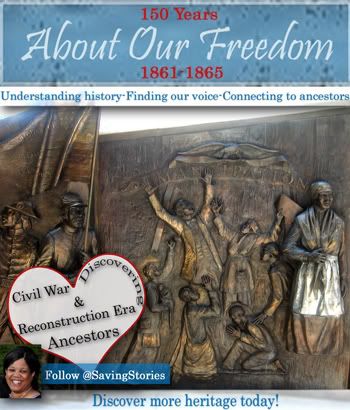Our Journey 1: Freeing future generations from the effects of slavery
Your first question may be, "So what makes you an authority?" I have made significant strides along the path to becoming totally free from the grips of the effects of slavery in my life. My efforts have made even more of an impact upon the two most precious people in my life pictured below.
Pioneering effort| The River Walk, Columbia, South Carolina |
It's all about practicing the principles that will help you to bring about meaningful and permanent change. Remember when I posted Something Neither The Proclamation Nor The Bill of Rights Can Do? Well Martin Luther King touched on this idea to a great extent. Had he been allowed to live out his days among us, he would have been able to walk us further down the path on the journey to becoming free from the negative impact of slavery.
Many of us have found that the oldest living family members have been unwilling and very forgetful about the past. Well, now we are far enough removed and mature enough to face the issues. By doing so, we can recognize our individual weaknesses and turn those weaknesses into strengths.
How many of you know that the teacher is twice blest? Well, that is why I am extending to you this invitation to walk with me. Your input will be very helpful along the way. You in turn, will become a teacher to someone else. If you have precious ones like my two above, I promise it will be worthwhile time spent.
Invest in a journal so that you can measure your progress and vent your feelings too personal to share. Be sure to share any inspiration here that may help the rest of us.
Our journey begins
In the article, Is W. E. B. Dubois Allowed To Compare the Civil War With Nazi Germany, by Kevin Levin, where the word "genocide" is used in reference to slavery by those responding. In my response, I refer to Raphael Lemkin, Polish lawyer of Jewish descent, who coined the word "genocide" in 1943, during the same time period that DuBois wrote about the great travails occurring far away in Germany.
Lemkin's description of genocide in his day surprisingly coincides with the many areas African Americans were impacted detrimentally by slavery: "disintegration of the political and social institutions, of culture, language, national feelings, religion, and the economic existence of national groups, and the destruction of the personal security, liberty, health, dignity, and even the lives of the individuals belonging to such groups." See Axis Rule in Occupied Europe.
Assignment 1: Identifying the effects of slavery
Now our first assignment will be to create a chart in our journals listing each of the above areas. We may discover that they are not all encompassing. For now, make three columns. List the categories above in the first column. The second column would be entitled, "African Americans in general." The third column should be entitled "Exists in my myself/family."
Your chart should look something like this:
| Areas Slavery Impacted | African Americans in General | Exists in My Family/Myself |
| Political | ||
| Social | Some feel more entitled | |
| Culture | Disintegration of the family Missing ancestral links | |
| Language | ||
| National Feelings | Support of the Union cause Strong ideals regarding freedom | |
| Religion | Used bible to reinforce slavery | |
| Economy | Poverty | |
| Personal Security | Feeling of helplessness | |
| Liberty | No freedom of choice Servitude Generations in bondage | |
| Health | ||
| Dignity | ||
| Education | Death was the penalty for reading/writing |
You will notice that I added education and started to fill in the second column with specific problems or effects in each category. Will you help me identify more for column 2? Leave a comment, and I will add your suggestions. Then we will go on to the next exercise.

























0 comments